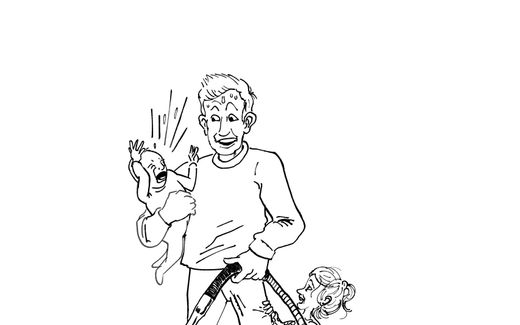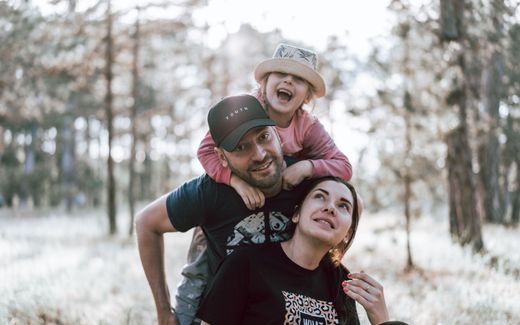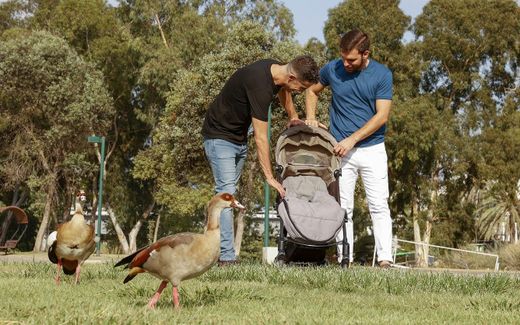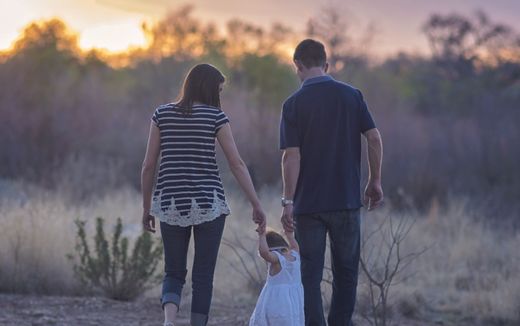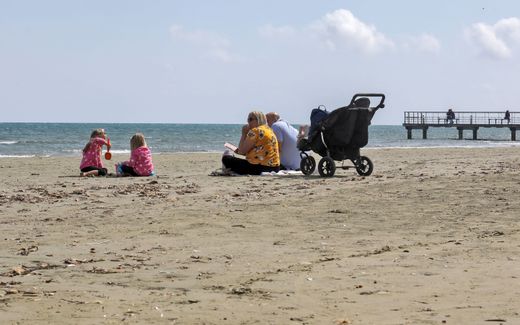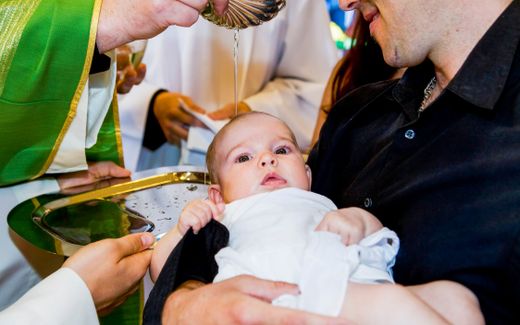Why do so many fathers abandon their family?

A father and daughter enjoy the snow at a park. Photo, EPA, Andy Rain
Christian Life
Children without a father are at highger risk of becoming criminals. But many children grow up with a single parent. Often, the father leaves his family behind. What are the reasons behind this? La Croix L'Hebdo found out.
Recently, France made the headlines of newspapers worldwide because violent demonstrations broke out all over the country after a teenager was shot by the police. Stores were looted, and much vandalisation took place. Remarkable was that many of the perpetrators came from families with an absent father. In 2020, research showed that one in four French children lived in a single-parent family.
And why are there more single-parent families led by a mother instead of by a single father? The reasons are many, La Croix L’Hebdo discovered during its research.
The father who disappeared
Jipetto is one of the French fathers who never sees his children and does not pay alimony. His story is a sad one. When he was 33 and met his partner, he had an alcohol problem. That led him and his partner to disagree about whether they wanted children.
When a baby is born, despite the objections Jipetto has, the relationship gets stuck. Afterwards, he sinks into a black hole. Because of a violent incident with his former father-in-law, he is sentenced to prison. When he is released, he falls into the trap of a drug addiction.
And he never saw his son again, Jipetto tells La Croix. He never claimed his rights to see his son, and he does not pay alimentation either. "I tried to be a father, and then I failed. I cried so much. So, now I let God do it. I'm trying to rebuild myself."
Some of the absent fathers are in prison. Statistics from the Ministry of Justice from last September have shown that 44 per cent of the 71,227 male inmates say they have a child. That means that there are at least 31,000 fathers in prison, La Croix calculated. Other statistics, from the Children of Prisoners Europe, point out that there are almost 79,000 children who grow up while their fathers are in prison. Many of these fathers have never learned to be a father as they missed the first steps of their child, their first day of class, and their graduation.
That some fathers don't know how to be good fathers is a generational problem, La Croix explains. Many fathers do not have the words to express themselves to their children because they have never learned to do so from their own fathers. Research shows that fathers who never saw their own fathers are much more frequently absent from their own families as well.
The father with an absent father
The 44-year-old Daniel barely sees his father. The only memories the warehouse employee has of his father is that the latter was always angry. "And be careful, he had a good anger. Besides, he developed hypertension."
Daniel's own family has severe problems as well. He is divorced but never sees his eldest daughter anymore after the school of his three children complained about domestic violence at home. "It's true, I shout a little loudly for my taste, but it is not really what I call violence", he tried to explain. In addition, he pointed out that his idea of parenthood was that "the mother is for gentleness and the father for authority."
Now, Daniel is certain: "I think if he had educated me, it would have changed a lot of things: my behaviour, my authority." In the meantime, his eldest daughter is growing up without her father.
In France, there is a traditional idea that fathers are mainly responsible for the authority in their family. Immediately after the demonstrations following the death of teenager Nahel Merzouk, political leaders called for a "return to authority" within families, La Croix writes.
Paradoxically, the way men give meaning to their authority leads to more children growing up without a father. Many of them attempt to show their authority by domestic violence.
Oftentimes, however, they do not see their mannerisms as violent. The men La Croix spoke to all tried to soften up their actions. They blame the courts for blowing up their case if they are sentenced for domestic violence. Cédric, for example, acknowledges that he had pulled his daughter's hair. However, he had found a good excuse: "It was at the time of the breakup. The mother of my daughters had filed a complaint I had pulled her hair. But is it really violence? Or it is the violence of someone who is not really violent but has been pushed to the limit. I call it the "violence of the meek", he told La Croix.
Some fathers live on the street. They did not lose their family because they were guilty of domestic violence but became victims of personal conditions that made life difficult for them.
The father that lives on the street
Stéphane has three daughters; all of them have reached adulthood. However, he only sees them from time to time: when his health allows him and when his friend lends him his apartment. Because he is homeless, and he tries to hide that fact from his children.
The 49-year-old used to live with his daughter and wife until eight years ago when his partner committed suicide. "I never got over it. I let go of everything", Stéphane tells La Croix. The career soldier could not work any longer but still had to pay off his debt. Desperately, he let the children's judge place his daughters in care and sold everything. Today, he has nothing left except for the few visits to his daughters.
According to the Abbé-Pierre Foundation, which stands up for the interests of homeless people, there are about 330,000 homeless people in France this year. An earlier survey concluded that one in three is a father.
Many fathers only learn what the concept of fatherhood is about after they get divorced, La Croix points out. Many men are not very involved with the lives of their children until they divorce their wives. Then, the question comes up: who should take care of the children?
But when in court, many fathers do not use their right to ask for custody of their children. Many of them seem to believe that it is better for children to live with their mothers. Only 12 per cent of divorced parents let their children live with both of them alternatively.
"Many men took very little care of their children when they were in a relationship and therefore become fathers at the time of separation", sociologist Benoît Hachet said to La Croix.
Parents
At the same time, some fathers are able to overcome these difficulties and learn how to take care of their children.
One of them is Philippe, now 60 years old. He avoided becoming an absent father, even though he was at high risk of becoming one. He managed because of his parents, he says to La Croix, reflecting on the past. "Every time my son and daughter came in the beginning, my father was there. He never asked how I was. But as soon as my kids walked through the front door, he smiled at them. He suggested activities: "Who wants to go apple picking with grandpa?""
Related Articles


